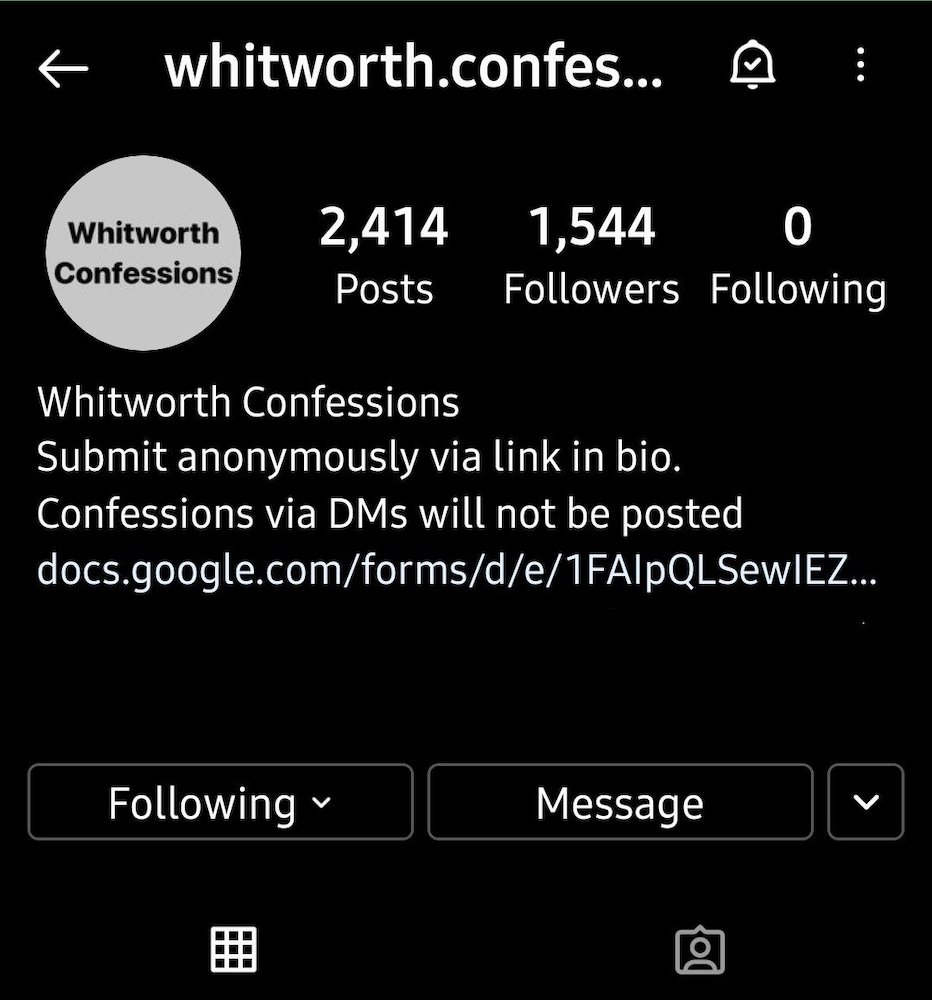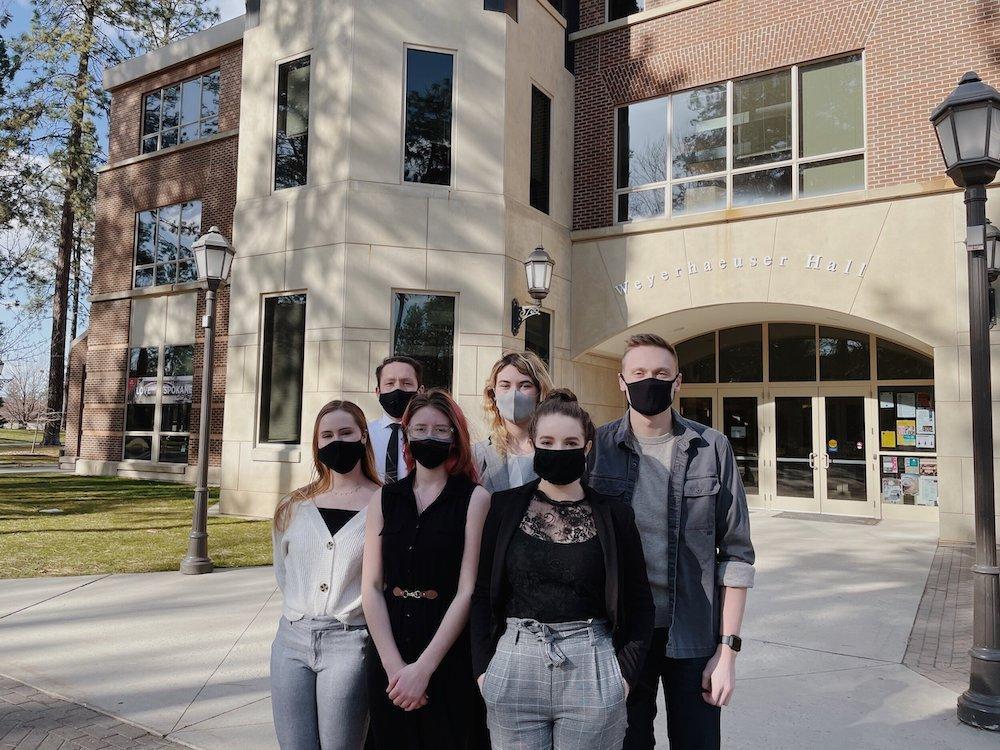Rachel Wilson | Staff Writer

You may have encountered the Instagram page Whitworth Confessions. Perhaps you’ve seen a heated argument taking place in the comments section there. The account has more than 1,500 followers and seems to be a hub of discussion for students considering Whitworth, current students and alumni alike. There are almost 2,700 “confessions” featured, and those who follow the private account can submit their own anonymously by filling out a Google form in its bio.
The account is anonymously run, and while the administrator claims not to alter or censor the confessions they post, they frequently employ warnings for possibly offensive or triggering content. The page features confessions of all kinds – from admissions of Big Three violations to grievances about the university and its policies, from admissions of life-threatening mental health crises and accusations of racism to bias incidents and assaults that the university allegedly dismissed or otherwise dealt with improperly.
While this page is certainly very popular, this isn’t the first time something like this – a public discussion forum made up of Whitworth students and alumni, as well as presumably staff and parents – has been created.
In 2011, a display in the HUB, modeled after the website PostSecret, was created for Cultural Awareness Week and was extended due to public support. Students could write anonymous confessions and they were posted on the wall outside Sodexo, until all the confessions were removed by the display’s creator after administration asked for some confessions to be removed.
In 2013, a Whitworth Confessions page was created on Facebook, following similar rules of anonymity.
In February of 2019, another Instagram page called WU Confessions appeared. This page also publicized anonymous student confessions and came under fire after publishing a confession that confessed to getting a woman drunk before having sex with her.
Most recently, a 2020 version of Whitworth Confessions has popped up on Instagram. This page is still receiving “confessions” and actively posting them.
A new anonymous public forum for the Whitworth community has cropped up at least 4 times in the last 10 years. Clearly, generations of students are recognizing that there are important matters going unnoticed on campus. Why?
I spoke with Bert Emerson, Ph.D., assistant professor of English. The topic of Whitworth Confessions is relevant in Emerson’s classes because of its relationship to democracy and culture. According to Emerson, “A campus community is not a place of pure equality.” Power hierarchies exist on campus – most relevantly, the one between the students and the institution. Emerson says, “Universities are in the business of public relations.” Such power differences make some feel at risk attaching their name to a confession of suicidality, an accusation of harassment or a criticism of the institution.
No matter the circumstances, bias incidents, sexual assault and mental health crises are issues that make those struggling feel unsafe. If, like many confessions suggest, these issues are being dismissed by the University, it’s the duty of students to address our institution’s shortcomings in order to pursue a just and healthy campus community for everyone.
These outlets for the Whitworth community crop up for different reasons. The 2011 PostSecret display was encored because “there [were] people who did not feel welcomed or part of this community, for one reason or another,” according to one of the creators. The creator of the 2013 Facebook group called “Whitworth Confessions” cited social judgement as the catalyst for confession. The owner of the controversial 2019 WU Confessions Instagram said “I made this page because of so many things that have happened at Whitworth University that have been pushed under the rug.”
As for the current Whitworth Confessions page, the creator claims that it was created with communication and change in mind, saying, “I originally started it the summer COVID happened, around the George Floyd protests. Even though we were all online and separated, I could feel the tension in the student body as we all struggled to process what was going on. Then and there, I made the decision to create a page for people to express their thoughts and be heard.”
To give some examples, @whitworth.confessions has featured accusations against Rhosetta Rhodes, vice president for Student Life, and the university for allegedly telling a suicidal student not to “be stupid” because it would look bad for Whitworth.
Another post accuses the university of allegedly firing a faculty member on the basis of her sexuality, and another alleges that Whitworth doesn’t provide benefits to spouses of LGBTQ+ employees.
These types of posts are crucial to the health of our community, and it’s important that people have outlets to criticize the institution. If we truly love Whitworth, we should want to know the good, the bad and the ugly, in order to make it the most healthy and caring community we can.
But obviously not everything on these pages is an important instance of whistleblowing. From the alleged sexual assault posted about on WU Confessions, to a confession of thoughts about the hypothetical torture of Whitworth students, anonymous public platforms can be breeding grounds for libel without consequences where it’s largely impossible to say what’s real and what isn’t.
It’s important that the subjects explored here – sexuality, mental health, social justice, campus politics and confessions of crisis and struggle – can be addressed in a healthy community. Whitworth Confessions has shown to be a tool of community – a personal, real-time forum of what’s going on in the hearts and minds of Whitworth students, as an opportunity to strengthen our community.













 Spokane?
Spokane?